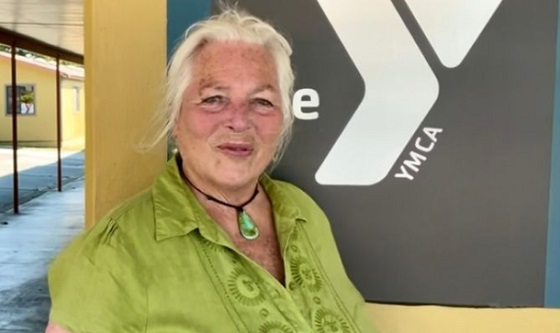Alberta
COVID mandates protester in Canada released on bail after over 2 years in jail

Chris Carbert (right) and Anthony Olienick, two of the Coutts Four were jailed for over two years for mischief and unlawful possession of a firearm for a dangerous purpose.
From LifeSiteNews
The “Coutts Four” were painted as dangerous terrorists and their arrest was used as justification for the invocation of the Emergencies Act by the Trudeau government, which allowed it to use draconian measures to end both the Coutts blockade and the much larger Freedom Convoy
COVID protestor Chris Carbert has been granted bail pending his appeal after spending over two years in prison.
On June 30, Alberta Court of Appeal Justice Jo-Anne Strekaf ordered the release of Chris Carbert pending his appeal of charges of mischief and weapons offenses stemming from the Coutts border blockade, which protested COVID mandates in 2022.
“[Carbert] has demonstrated that there is no substantial likelihood that he will commit a criminal offence or interfere with the administration of justice if released from detention pending the hearing of his appeals,” Strekaf ruled.
“If the applicant and the Crown are able to agree upon a release plan and draft order to propose to the court, that is to be submitted by July 14,” she continued.
Carbert’s appeal is expected to be heard in September. So far, Carbert has spent over two years in prison, when he was charged with conspiracy to commit murder during the protest in Coutts, which ran parallel to but was not officially affiliated with the Freedom Convoy taking place in Ottawa.
Later, he was acquitted of the conspiracy to commit murder charge but still found guilty of the lesser charges of unlawful possession of a firearm for a dangerous purpose and mischief over $5,000.
In September 2024, Chris Carbert was sentenced to six and a half years for his role in the protest. However, he is not expected to serve his full sentence, as he was issued four years of credit for time already served. Carbert is also prohibited from owning firearms for life and required to provide a DNA sample.
Carbert was arrested alongside Anthony Olienick, Christopher Lysak and Jerry Morin, with the latter two pleading guilty to lesser charges to avoid trial. At the time, the “Coutts Four” were painted as dangerous terrorists and their arrest was used as justification for the invocation of the Emergencies Act by the Trudeau government, which allowed it to use draconian measures to end both the Coutts blockade and the much larger Freedom Convoy occurring thousands of kilometers away in Ottawa.
Under the Emergency Act (EA), the Liberal government froze the bank accounts of Canadians who donated to the Freedom Convoy. Trudeau revoked the EA on February 23 after the protesters had been cleared out. At the time, seven of Canada’s 10 provinces opposed Trudeau’s use of the EA.
Since then, Federal Court Justice Richard Mosley ruled that Trudeau was “not justified” in invoking the Emergencies Act, a decision that the federal government is appealing.
Alberta
Alberta uncorks new rules for liquor and cannabis

Alberta’s government is supporting liquor producers by enabling them to own, operate and sell their own products on large format bikes or “party bikes.”
Albertans out for a spin on a party bike or tavern tour will soon be able to sip locally made beers and spirits. Alberta’s government is updating the rules to give small liquor producers the green light to serve their own products on party bikes, removing an outdated barrier that had prevented local producers from advertising their own brands.
This is one of several red tape reduction changes to the Gaming, Liquor and Cannabis Regulation (GLCR) aimed at making life easier for small businesses and expanding responsible choices for consumers.
“We are proud that these amendments not only cut red tape in the retail segment of the liquor marketplace, but also directly open more opportunities for small manufacturers to grow their businesses.”
More freedom to grow: Liquor and cannabis reforms
In addition to the changes to party bikes, Alberta is making it easier for liquor retailers to set up shop in underused commercial space. Businesses that own or lease large buildings can now carve out a separate liquor store within their space, so long as it has its own entrance and full floor-to-ceiling walls separating it from other retail operations.
Alberta’s government is also rolling out a long-awaited change for cannabis producers: federally licensed cultivators and processors will now be able to apply for a retail licence to sell their products directly from the same property, commonly known as “farm-gate” sales. This move aligns Alberta with other provinces and gives consumers more access to homegrown cannabis products, while supporting licensed growers.
These targeted reforms are part of Alberta’s broader push to cut red tape, reduce regulatory burden, and promote a more competitive marketplace across the province.
Quick facts
- Alberta’s retail liquor industry is robust, with more than 35,000 products available across more than 1,600 retail stores
- Larger companies with other retail stores, operate multiple retail stores that have a liquor store on site, but in a separate building.
- There are 752 licenced cannabis retail stores in Alberta.
- There are 2,356 licensed cannabis products for sale in the province.
- All cannabis retailers must be licensed by AGLC.
- Licensed producers are regulated by Health Canada.
Alberta
Alberta government records $8.3 billion surplus—but the good times may soon end

From the Fraser Institute
By Tegan Hill
According to last week’s fiscal update, the Smith government recorded a $8.3 billion surplus in 2024/25—$8 billion more than what the government projected in its original 2024 budget. But the good times won’t last forever.
Due largely to population growth, personal income tax revenue exceeded budget projections by $500 million. Business tax revenue exceeded budget expectations by $1.1 billion. And critically, thanks to relatively strong oil prices, resource revenue (e.g. oil and gas royalties) saw a $4.7 billion jump.
The large budget surplus is good news, particularly as it will be used to pay down government debt (which taxpayers must ultimately finance) and to invest for the future. But again, the good times could soon be over.
Recall, the Alberta government incurred a $17.0 billion budget deficit just a few years ago in 2020/21. And it wasn’t only due to COVID—until the recent string of surpluses, the government ran deficits almost every year since 2008/09, racking up significant amounts of debt, which still largely persists today. As a result, provincial government debt interest payments cost each Albertan $658 in 2024/25. Moreover, in February’s budget, the Smith government projected more deficits over the next three years.
Generally, Alberta’s fiscal fortunes follow the price of oil. Over the past decade, for example, resource revenue has been as low as $2.8 billion in 2015/16, while oil prices slumped to $US45.00 per barrel, and as high as $25.2 billion in 2022/23, when oil prices jumped to $US89.69 per barrel.
Put simply, resource revenue volatility fuels Alberta’s boom-and-bust cycle. In 2025/26, the West Texas Intermediate oil price will be a projected $US68.00 per barrel with projected resource revenue falling by $4.9 billion year-over-year.
But oil prices don’t need to dictate Alberta’s fiscal fortune. Indeed, if the Smith government restrains its spending, it can avoid deficits even when resource revenues fall.
There are plenty of ways to rein in spending. For instance, the government spends billions of dollars in subsidies (a.k.a. corporate welfare) to select industries and businesses in Alberta every year despite a significant body of research that shows these subsidies fail to generate widespread economic benefit. Eliminating these subsidies is a clear first step to deliver significant savings.
The budget surplus is undoubtedly positive for Albertans, but the good times could soon come to an end. To avoid deficits and debt accumulation moving forward, the Smith government should rein in spending.
-

 Alberta2 days ago
Alberta2 days agoAlberta Provincial Police – New chief of Independent Agency Police Service
-

 Crime2 days ago
Crime2 days agoBryan Kohberger avoids death penalty in brutal killing of four Idaho students
-

 COVID-192 days ago
COVID-192 days agoTop COVID doctor given one of Canada’s highest honors
-

 Opinion2 days ago
Opinion2 days agoBlind to the Left: Canada’s Counter-Extremism Failure Leaves Neo-Marxist and Islamist Threats Unchecked
-

 International1 day ago
International1 day agoWoman wins settlement after YMCA banned her for complaining about man in girls’ locker room
-

 Banks1 day ago
Banks1 day agoWelcome Back, Wells Fargo!
-

 Alberta1 day ago
Alberta1 day agoAlberta government records $8.3 billion surplus—but the good times may soon end
-

 MxM News1 day ago
MxM News1 day agoDiddy found not guilty of trafficking, faces prison on lesser charge







